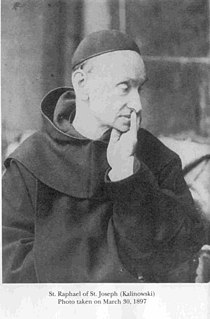 W
WAdam Asnyk, was a Polish poet and dramatist of the Positivist era. Born in Kalisz to a szlachta family, he was educated to become an heir of his family's estate. As such he received education at the Institute of Agriculture and Forestry in Marymont and then the Medical Surgeon School in Warsaw. He continued his studies abroad in Breslau, Paris and Heidelberg. In 1862 he returned to Congress Poland and took part in the January Uprising against Russian rule. Because of that he had to flee his country and settled in Heidelberg, where in 1866 he received a doctorate of philosophy. Soon afterwards he returned to Poland and settled in the Austrian-held part of the country, initially in Lwów and then in Kraków.
 W
WAgaton Giller was a Polish historian, journalist and politician. He and his brother Stefan Giller played notable roles in the Polish independence movement and in the January 1863 Uprising.
 W
WWincenty Konstanty Kalinowski, also known as Vincent Kanstancin Kalinoŭski or Kastuś Kalinoŭski, Konstanty Kalinowski (Polish) and Konstantinas Kalinauskas (Lithuanian), was a 19th-century Belarusian writer, journalist, lawyer and revolutionary. He was one of the leaders of the Polish, Lithuanian and Belarusian national revival and the leader of the January Uprising in lands of the former Grand Duchy of Lithuania in the Polish–Lithuanian Commonwealth.
 W
WRaphael of St. Joseph Kalinowski was a Polish Discalced Carmelite friar inside the Russian partition of Polish–Lithuanian Commonwealth, in the city of Vilnius. He was a teacher, engineer, prisoner of war, royal tutor, and priest, who founded many Carmelite monasteries around Poland after their suppression by the Russians.
 W
WZygmunt Padlewski (1836–1863) was a Polish insurgent who participated in the January Uprising. He was one of the leaders of the "Red" faction among the insurrectionists as a member of the Central National Committee and the Provisional National Government.
 W
WZygmunt Sierakowski was one of the leaders of the January Uprising in lands of the former Grand Duchy of Lithuania in the Polish–Lithuanian Commonwealth. Sierakowski was married with his wife Apolonia Dalewska in Kėdainiai, present-day Lithuania in 1862. According to the verdict of the Military Field Court, he was hanged in Lukiškės Square in Vilnius and was secretly buried on Gediminas' Hill. One of the most precious artefacts found alongside his remains was a wedding ring, which was still on his right arm, with an inscription on the inside of the ring "Zygmund Apolonija 11 Sierpnia / 30 Lipca 1862 r."
 W
WRomuald Traugutt was a Polish general and war hero best known for commanding the January Uprising of 1863. From October 1863 to August 1864 he was the leader of the insurrection. He headed the Polish national government from 17 October 1863 to 20 April 1864, and was president of its Foreign Affairs Office.
 W
WJózef Wysocki was a Polish general, soldier in the November Uprising of 1830, the Hungarian Revolution of 1848 and the January Uprising of 1863.
 W
WRoman Żuliński - a Polish mathematician and co-commander of the January Uprising.